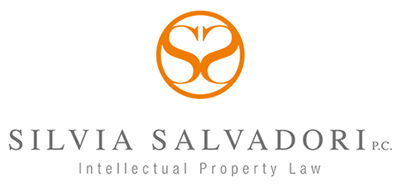In a recent case, Actavis Laboratories v. Nalproprion Pharmaceuticals, the Supreme Court denied certiorari to a case which would have clarified the statute 35 U.S.C. § 112(a) lack of written description. The case arose from a District Court decision that one claim (claim 11) of U.S. Patent 8,916,195 was not invalid for failure to satisfy […]

{1:50 minutes to read} In a recent case, Life Technologies Corp. v. Promega Corp., the Supreme Court reinterpreted the meaning of the patent infringement statute 35 U.S.C. § 271(f)(1). The statute reads: “Whoever without authority supplies or causes to be supplied in or from the United States all or a substantial portion of the components […]
{Read in 5:20 minutes} In Akamai v. Limelight, the District Court awarded Akamai almost $50 million after finding that Limelight directly infringed a patent. The patent at issue covered a method of delivering electronic data using a content delivery network (CDN). Limelight, a CDN operator, did not carry out all of the steps of the […]
The recent case Biosig Instruments Inc. v Nautilus Inc. sets a new standard for what is considered “indefinite” under U.S. patent law. Here are the facts of the case: Biosig Instruments, Inc., owner of a patent for a heart rate monitor, sued Nautilus, Inc. in District Court, alleging infringement of the patent. Nautilus moved to […]
{2:15 minutes to read} The Supreme Court has now heard oral arguments and accepted briefs in the very interesting case In Re: Thomas G. Packard. The importance of the case involves the definition of “what is indefinite.” According to the United States Patent and Trademark Office (USPTO), a claimed term is “indefinite” when it is […]
{Time to read: 2:15 minutes} The Supreme Court recently agreed to hear a case which could have huge implications for the future of patent infringement in the United States. The case is Commil USA, LLC v. Cisco Systems, Inc. and the basic facts are these: Commil sued Cisco for infringing patents relating to improving wireless […]
In June of 2014, the Supreme Court of the United States decided on Alice Corp. v. CLS Bank International, a case relevant for the patentability of the claims under 35 U.S.C. 101. The U.S. Supreme Court affirmed the invalidity of Alice’s patent claims directed to a computer-implemented method of reducing settlement risk. The claims were […]
At the end of September 2014, at the Biotechnology Industry Organization (BIO) IP & Diagnostic Symposium, attendees learned additional information regarding the new United States Patent and Trademark Office (USPTO) guidelines, which were supposed to be released by the end of October. Unfortunately, we are now at the end of November and the guidelines still […]
A series of recent Supreme Court cases have left the state of patent law in flux, and what happens next is really anyone’s guess. The Court’s decisions in Bilski v. Kappos, Mayo Collaborative Services v. Prometheus Laboratories, Inc. and Association For Molecular Pathology v. Myriad Genetics, Inc. have resulted in scores of patent applications being rejected […]